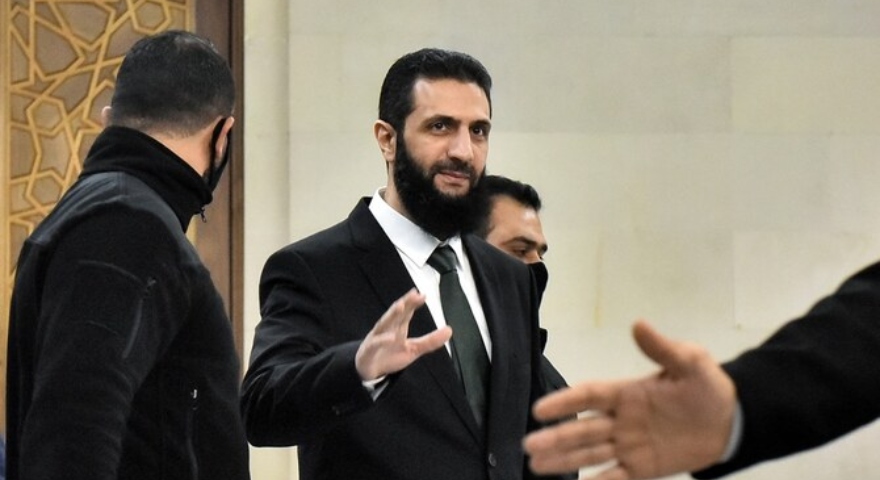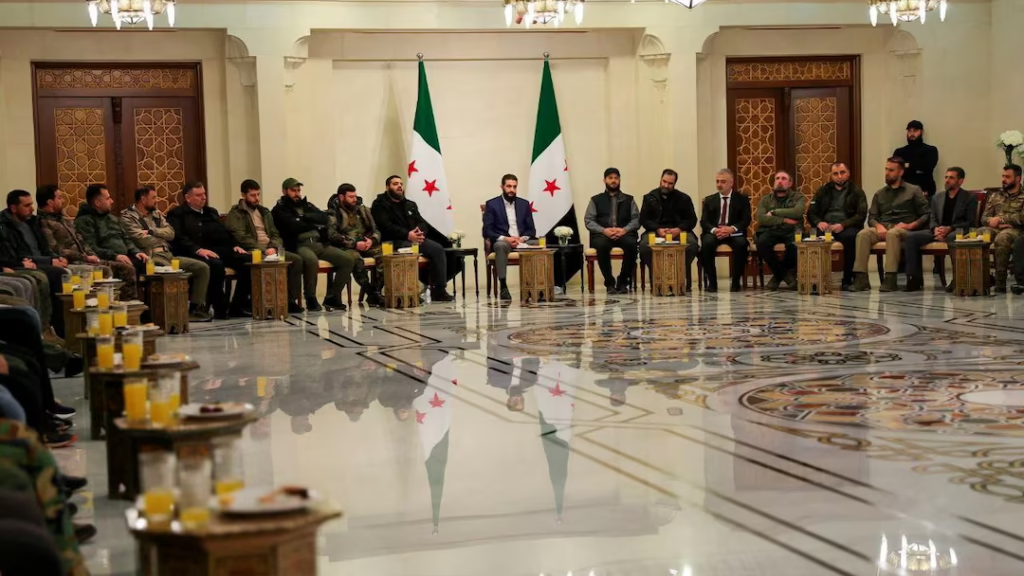Syria’s de facto leader Ahmed al-Sharaa announced on Tuesday a landmark agreement to dissolve all former rebel factions and unify them under the country’s defence ministry. The move marks a significant step toward consolidating power following the ousting of Bashar al-Assad earlier this month, ending decades of his family’s rule.

The agreement, reached between Sharaa and former rebel faction leaders, aims to integrate disparate groups and officers who defected from Assad’s army into a cohesive military under the interim government.
Murhaf Abu Qasra, a prominent figure in the insurgency that toppled Assad, has been appointed defence minister. Prime Minister Mohammed al-Bashir had previously stated that the restructuring of the defence ministry would rely on contributions from former rebel forces and defected officers.

Sharaa faces the daunting task of ensuring harmony among Syria’s myriad rebel factions, which have often clashed in the past. The agreement seeks to prevent infighting and create a united front to address Syria’s ongoing challenges.
In discussions with Western officials, Sharaa, who leads the Islamist group Hayat Tahrir al-Sham (HTS)—a former al-Qaeda affiliate—has assured that his administration will not seek revenge against members of the former regime. He also pledged to protect the rights and freedoms of Syria’s diverse ethnic and religious minorities.

Syria’s population includes Muslim Kurds, Shi’ites, Druze, Syriac Christians, Greek and Armenian Orthodox Christians, all of whom had feared persecution under Sunni Islamist rule during the civil war. Sharaa has emphasized that his government will respect and safeguard their way of life.
The unification of rebel factions follows the fall of Damascus on December 8, when rebel forces seized control of the capital, forcing Assad to flee after 13 years of brutal civil war. The development has brought an end to the Assad family’s decades-long rule over Syria.


